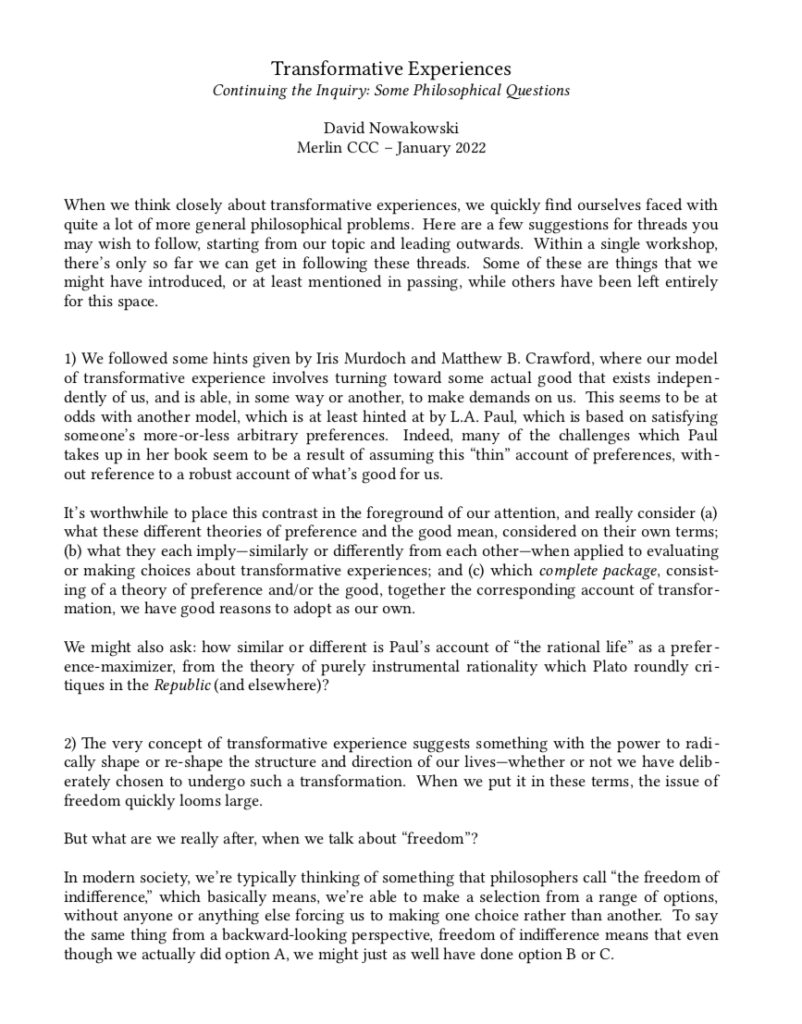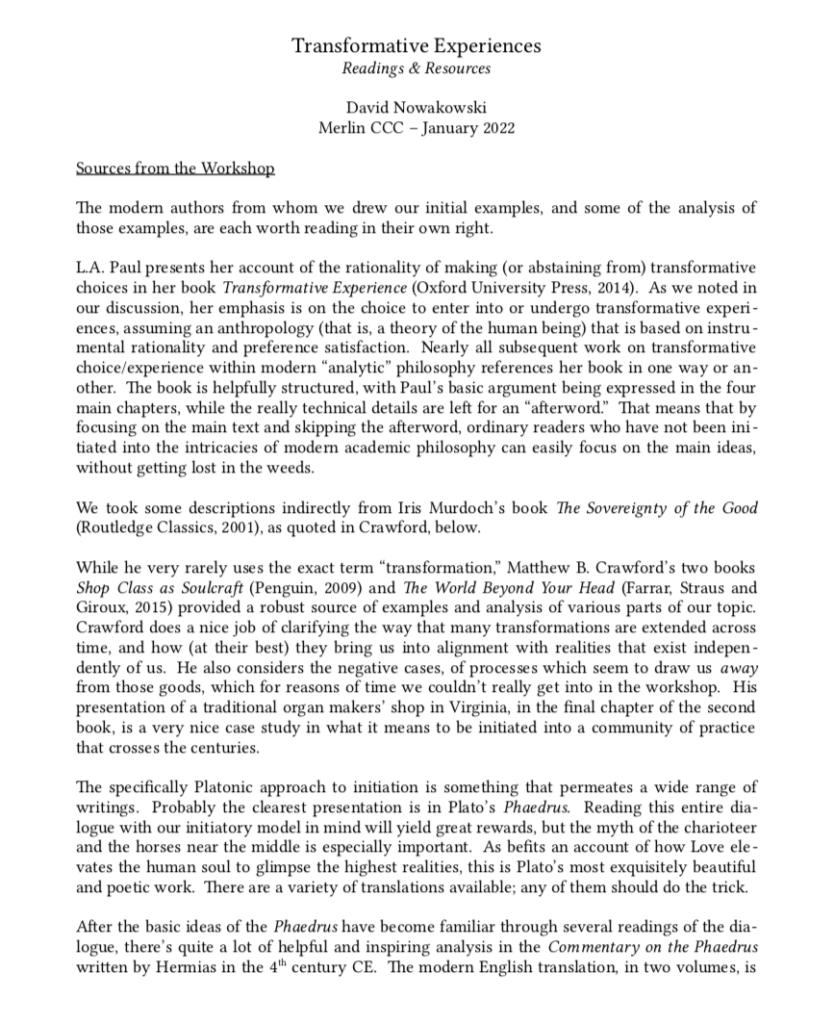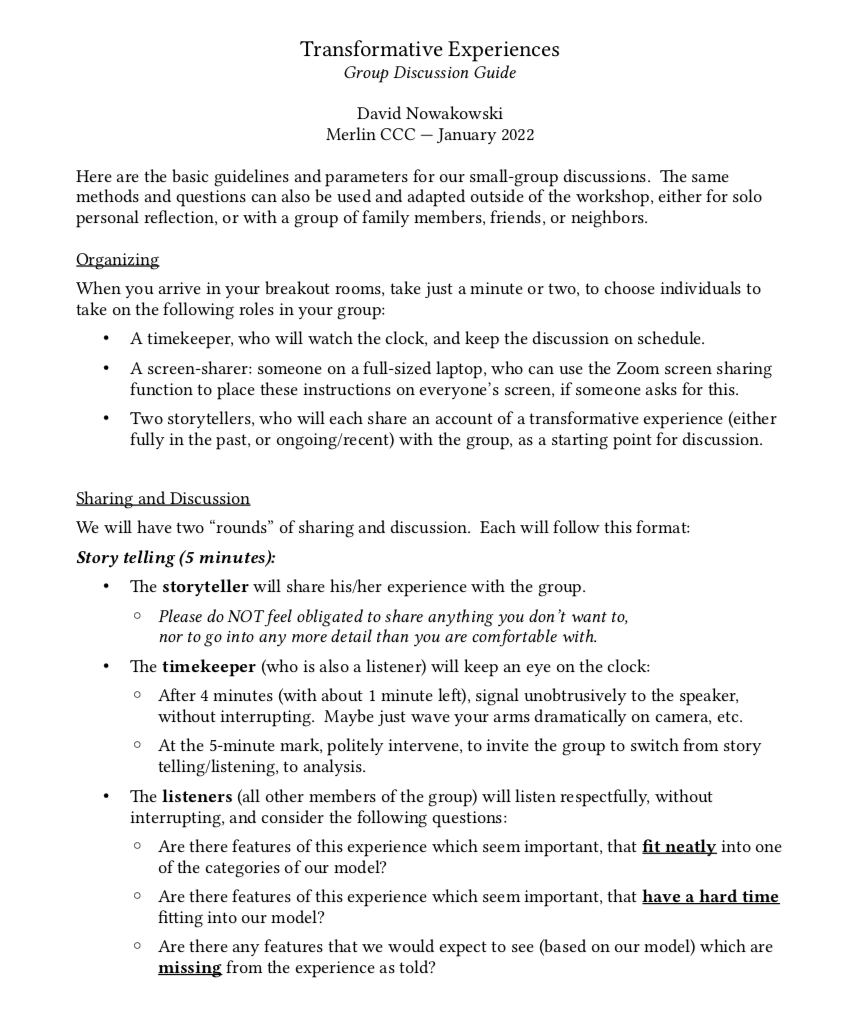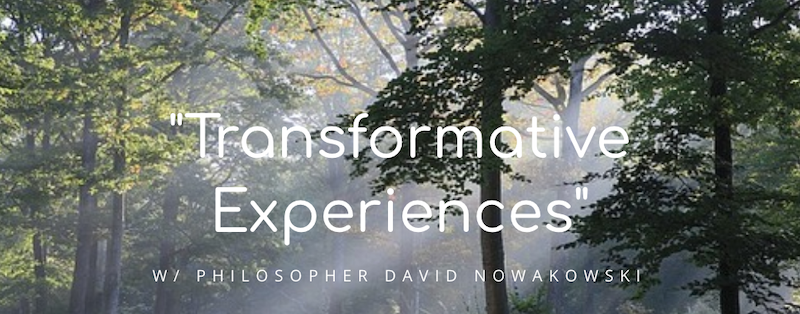
Some experiences in life are so significant, so profound, so intense, that after we go through them, there’s a very real sense in which “we’re not the same person we used to be.” That might involve a change in how we understand ourselves or the world, or in what we value or take to be important.
These experiences can feel pleasant or miserable. They can be planned or unplanned, freely chosen or forced upon us by fate, chance, or other people. Examples range from becoming a new parent, to becoming paralyzed or losing a limb, or even a medical intervention that allows someone born deaf to hear music for the first time. They may involve a life-threatening car accident or a near-death experience, a mystical vision on a mountaintop, or a chance encounter with a stranger on the sidewalk. The experience itself might be extended over time, like army boot camp or an apprenticeship in the skilled trades. Or it might be something else altogether. The elusive factor is that in some way or other, the experience, or how we respond to it, radically changes us—in ways that we cannot (fully) imagine beforehand. We are no longer who we used to be.
In this workshop, we developed some basic concepts and categories, that might help us make sense of these transformative experiences:
- How do these experiences work? Are there common elements, patterns, or stages?
- When, and why, should we choose to undergo such an experience?
- Is it even possible to make a reasonable, rational choice to have (or avoid) this kind of experience, when the results are often so far beyond anything we could imagine or plan for?
- How might we effectively respond to such an experience, whether it was freely chosen or not?
And we pointed toward some of the bigger philosophical questions lurking behind the problem of transformative experience, including:
- Rational choice: Whose values, interests, duties, or knowledge are involved
- Personal identity: What does it mean to say that we are, or are not, the same person at different times?
- Freedom and the Good: How do ancient and modern notions of goodness differ? Can appealing to “our good” help explain what it means to become “more ourselves”?
Among some contemporary philosophers, transformative experiences have become a bit of a hot topic, following L.A. Paul’s book, Transformative Experience (Oxford University Press, 2014). So we started with some of the key ideas raised in Paul’s work, and by some of the philosophers who have responded to her. But we also took a wider historical view of these questions, looking as far afield as the ancient Platonic commentators discussing the Orphic Mysteries, as well as some other classic thinkers between here and there.
Session Recording
~ If you are viewing this video on a desktop or laptop, both chapter markers & the chapters menu are visible. On mobile devices, only the chapters menu is. The menu is located to the right of the play bar and settings gear. ~
Readings & Resources
About the Workshop Leader...
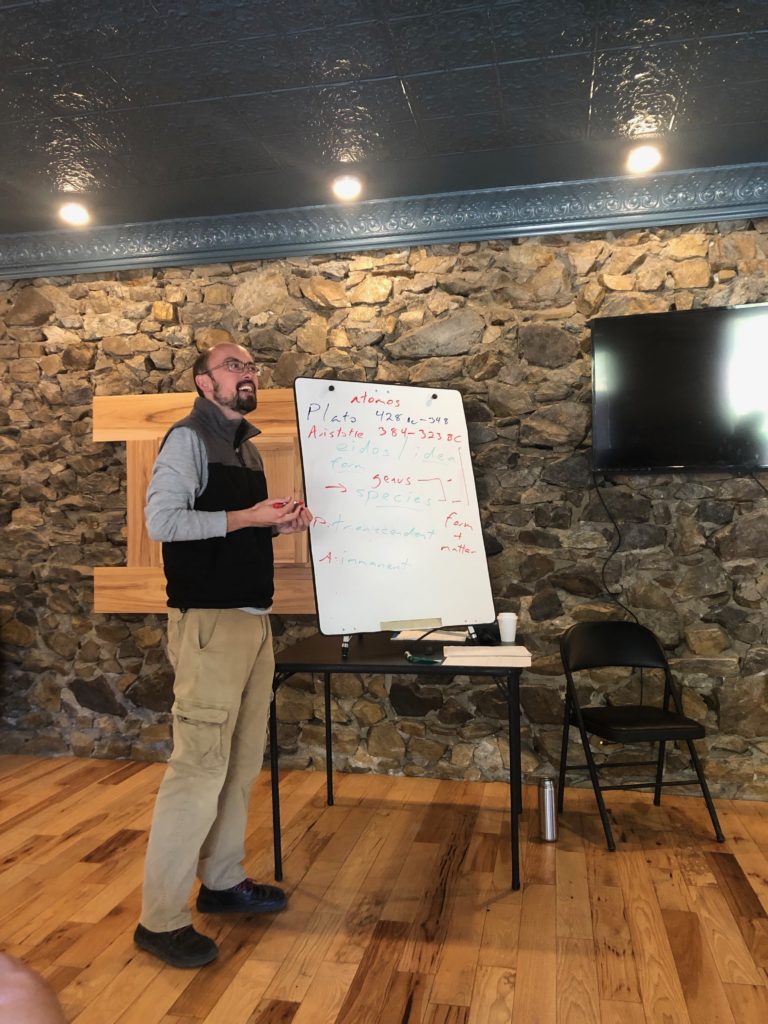
David is as a philosopher and educator whose professional work is dedicated to helping people of all ages and backgrounds access, understand, and apply the traditions of ancient philosophy to their own lives. A lover of philosophy and the great outdoors, David is currently building his own consulting practice and serves as a Philosophical Advisor and Consultant for Merlin CCC & Senior Mentor for scholars in the Merlin Fellowship Program.
David began studying ancient philosophies and classical languages in 2001, and has continued ever since. A scholar of the philosophical traditions of the ancient Mediterranean (Greece, Rome, and North Africa) and of the Indian subcontinent, reading Sanskrit, Latin, and classical Greek, he earned his Ph.D. in philosophy from Princeton University in 2014. His work has appeared in a variety of scholarly journals, including Philosophy East & West, Asian Philosophy, and the Journal of Indian Philosophy; as well as in presentations to academic audiences at Harvard, Columbia University, the University of Toronto, Yale-NUS College in Singapore, and elsewhere.
A hermit by nature and by committed choice, he balances contemplative solitude with his active work in teaching, counseling, and the healing arts. We are elated to be collaborating with David on our philosophy in the community activities, fellowships, and other Merlin projects.

